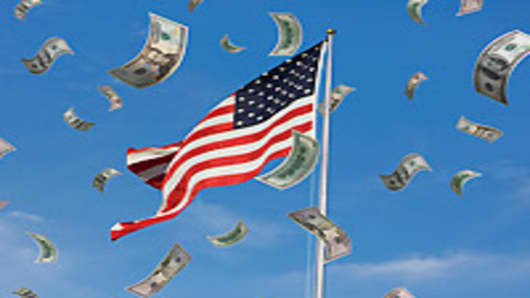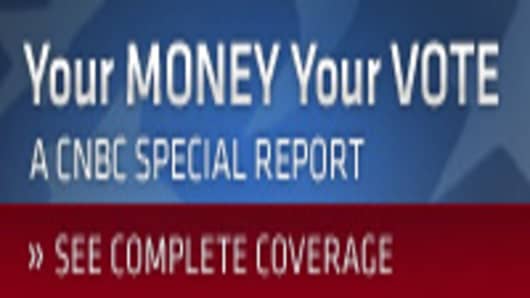Much of the debate about whether to extend the Bush tax cuts has focused on big economic issues: how the decision might affect the fragile economy, the widening federal deficit and hiring by small businesses.
As the political battle drags on, however, it has also veered into a more basic matter of fairness, whether a person who earns more than $200,000 a year should be taxed at rates similar to those who make $5 million.
President Obama has proposed preserving the cuts for middle-class Americans and letting them expire for the top 2.5 percent of taxpayers — individuals who make more than $200,000 a year and families whose income exceeds $250,000.
But others in Congress have questioned why ending what Mr. Obama frequently calls “tax cuts for millionaires and billionaires” should also raise taxes on families making $250,000. The Senate will not vote on the matter until after the midterm elections, and some Democrats are pushing for a compromise that would leave the cuts in place for those higher up the income scale.
“I think the $250,000 level is too low,” said Senator James Webb, Democrat of Virginia. “I’m asking that it be raised.”
One proposal being discussed is a millionaires’ tax, which would create one or two additional tax brackets for the wealthiest Americans and eliminate the Bush tax cuts only for those who earn more than seven-figure incomes.
But Mr. Obama and Democratic leaders in Congress have thus far held firm to the dividing line of $200,000 for individuals and $250,000 for families. And others warn that making the tax code more complicated often has the unintended consequence of encouraging taxpayers to circumvent the system.
“If you make the tax law simpler, more easily understood and fairer, you end up with a higher level of compliance and more revenue,” said Senator Judd Gregg, Republican of New Hampshire, co-sponsor of a tax overhaul plan that would eliminate many deductions and exemptions and reduce the total number of brackets from six to three.
Leaders in the Senate announced last week that they would not vote on the matter until after the elections on Nov. 2 because some Democrats in tight races worried that Mr. Obama’s plan would leave them vulnerable to campaign attack ads accusing them of raising taxes.
Most of the opposition to the plan has come from those who warn that ending the cuts, even on the wealthiest, would further weaken the struggling economy and harm small businesses.
But because the cuts will have expired for everyone on Jan. 1 unless Congress takes action, lawmakers are virtually certain to revisit the issue in the lame-duck session.
At the heart of the debate is the fact that, like most Western countries, the United States has a progressive tax code that levies higher rates on people with higher incomes. But the concept of class and the issue of taxes are both so politically charged that discussions about how to calibrate those rates and how much income qualifies someone as rich in the contemporary United States are incendiary.
"“I think the $250,000 level is too low. I’m asking that it be raised.”"
During the presidential campaign in 2008, the Republican nominee, Senator John McCain of Arizona, set off a fury when he was asked the dividing line between middle class and rich and replied that it was $5 million, a statement he said was intended as a joke. Mr. Obama’s response was $150,000, a figure that is three times the median family income.
With unemployment at 9.6 percent and the economy languishing, discussions about the financial pressures facing the wealthiest Americans can quickly devolve into shouting matches.
A University of Chicago professor earlier this month wrote a post on an academic blog complaining that if Mr. Obama’s proposal became law, he and his wife, who earn more than $300,000 combined, might have to lay off their housekeeper.
Responses to the post were so visceral and angry that the professor, M. Todd Henderson, deleted it from the Internet, saying that the “electronic lynch mob” had made him fear for his family’s safety.
But in some expensive sections of the country, many families with income levels near the $250,000 cutoff insist that they have more in common with middle-class Americans than millionaires or billionaires.
“You take a couple in Westchester County, a police officer with a lot of overtime and a principal at a public school,” said Vincent R. Cervone, a certified public accountant in New York City. “They’re grateful to be working. They aren’t in danger of eviction or starving. But the cost of the average house is $500,000 — five times the national average. Taxes are higher than the rest of the country. If they have a couple of children in college, can you call them rich? Not by any common-sense standard.”
The dispute over what income level qualifies as rich is caused, in part, by the tendency of people to gauge their own wealth by comparing themselves to those closest to them. A study released this month by two Princeton University professors found that in most of the country, people feel comfortably middle class if they earn $70,000. But in New York City, the figure was $165,000. The median income in New York City is $55,980, according to the Census Bureau.
J. Bradford DeLong, an economics professor at the University of California, Berkeley, said many of the top earners in the United States did not consider themselves rich because they compared themselves to the statistically small segment of the people who earned more than them, rather than the much larger segment who made less.
“It is pathetic and embarrassing that somebody with five times the median household income, someone in the top 2 or 3 percent of the population, thinks of himself as just another ‘average Joe,’ ” said Professor DeLong, who was a deputy assistant secretary of the Treasury Department in the Clinton administration. “Why don’t you ask someone who makes $40,000 or $50,000 a year if they have a lot in common with a family making $250,000?”
The fact that families making $250,000 are sometimes being invoked in the same terms as billionaires is a symptom of one of the paradoxes of the American tax system: at the same time that wealth has become far more concentrated in recent decades, the tax code has become far less precise in differentiating levels of affluence.
Today’s tax code not only has far lower rates than it had a half century ago, it has fewer brackets — just six. Mr. Obama’s plan would raise the top bracket (which affects income for individual filers who earn over $382,550) to 39.6 percent, from 35 percent. It would also raise the second-highest bracket to 36 percent, from 33 percent.
Mr. Obama’s plan would charge the same rate on the 382,551st dollar of earnings as it would on the 30 millionth.
Tax brackets at the upper end of the income scale were not always drawn so broadly. In 1970, when someone earning $37,000 had the buying power of a $200,000 income today, there were 25 income brackets. The taxpayer with $37,000 was taxed at the middle of the scale — 13 of the brackets charged higher rates to those with higher income.
Congress reduced the number of brackets in the 1980s in an effort to make the tax code simpler and to cut down on the abuse of shelters and deductions.
In the last 30 years, however, the percentage of total income earned by the top 1 percent of Americans has grown sharply — to 23.5 percent in 2007, from about 9 percent in 1979. And the income share of the top 0.1 percent has grown even faster — to 6 percent in 2007 from 2 percent in 1988.
Mr. Obama has used those income gains to argue that his plan is fair; at a town hall meeting last week, the president noted that 85 percent of the cost of extending the upper-income tax cuts would go to benefit “millionaires and billionaires.”
But it is unclear what, if anything, Congress will do to address the issue. Republicans uniformly oppose letting any of the tax cuts expire. Democrats have vowed to pass Mr. Obama’s plan after the elections. Given that they are likely to lose seats — and possibly control of one or both houses of Congress — it is uncertain whether they will follow through, compromise or simply extend all the cuts for a limited period.
Eric J. Toder, an economist at the Tax Policy Center, said that while the overall tax system was progressive now, there was historical precedent for creating new brackets to address a shift in income to the very highest end of the scale.
“The reason they fiddle around with the rate schedules and new brackets is to fine-tune,” he said. “The economic question is, What economic effects do you get in terms of sheltering income and how would it affect investment? But politics, not economics, will determine the outcome.”



